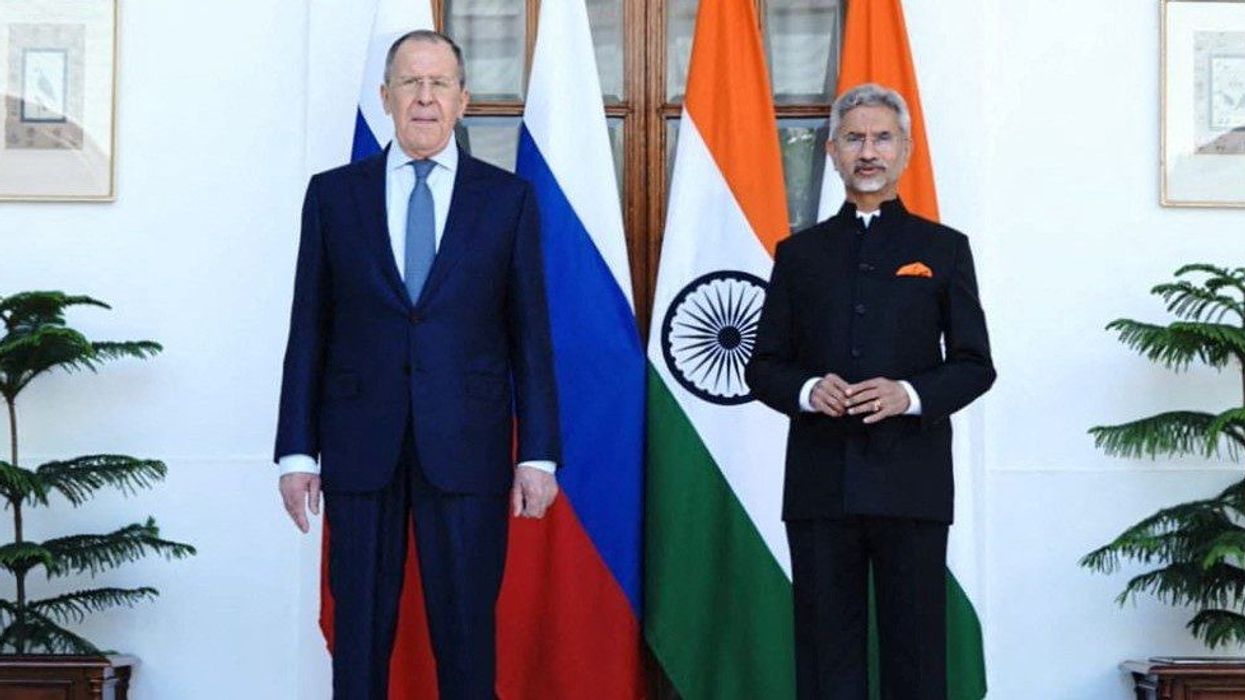RUSSIA will increase its use of non-Western currencies for trade with countries such as India, its foreign minister said on Friday (1), as he hailed India as a friend that was not taking a "one-sided view" on the Ukraine war.
Sergei Lavrov visited India on a mission to shore up support from a country Russia has long regarded as an ally a day after US and British officials pressed India to avoid undermining the dollar-based financial system and sanctions imposed on Russia for its invasion of Ukraine on February 24.
India and China are the only major countries that have not condemned what Russia calls its "special military operation". After Lavrov visited China this week, Beijing said it was "more determined" to develop bilateral ties with Russia.
"We are friends," Lavrov told a news conference after meeting his Indian counterpart, Subrahmanyam Jaishankar, adding India saw the Ukraine crisis in the "entirety of facts and not just in a one-sided way".
Lavrov said Russia's central bank had several years ago established a system for the communication of financial information and India had a similar system.
"It is absolutely clear that more and more transactions would be done through this system using national currencies, bypassing the dollar, euro and other currencies," he said.
Russia is the biggest supplier of defence equipment to India and Lavrov said the two countries would use a rupee-rouble mechanism to trade oil, military hardware and other goods.
"We will be ready to supply any goods which India wants to buy," he said.
"I have no doubt that a way would be (found) to bypass the artificial impediments which illegal unilateral sanctions by the West create. This relates also to the area of military-technical cooperation."
Lavrov said there was some movement forward in negotiations with Ukraine.
"Non-nuclear, non-bloc, neutral status - it is now being recognised as absolutely necessary," he said.
Lavrov said Russia would be open to India mediating between Ukraine and Russia but he had not heard of any such proposal, while Jaishankar said India stood for the peaceful resolution of disputes.
"India, as you are aware, has always been in favour of resolving differences and disputes with dialogue and diplomacy," he said.
Defence analysts say India can ill-afford to alienate Russia given its reliance on Russian hardware and on oil imports.
India has bought millions of barrels of crude oil from Russia at a discount since the war erupted, justifying the purchases as beneficial for its citizens and something that even European countries are doing.
India has also contracted to buy sunflower oil from Russia at a record high price after supplies from Ukraine stopped due to the war.
Speaking on a visit to New Delhi on Thursday (31), US deputy national security adviser for international economics, Daleep Singh said Washington would not set any "red line" for India on its energy imports from Russia but did not want to see a "rapid acceleration" in purchases.
British foreign secretary Liz Truss also said on a visit to India on Thursday that Britain respected India's decision to buy discounted Russian oil while advocating stringent sanctions on Russia relating to the ports, gold and energy sectors.
Singh voiced US concern about Russia's bid to circumvent the financial restrictions that the West hope will press it to end its war in Ukraine.
"We would not like to see mechanisms that are designed to prop up the rouble or to undermine the dollar-based financial system, or to circumvent our financial sanctions," he said.
(Reuters)
Russia praises ‘friend’ India, hopes to bypass sanctions




